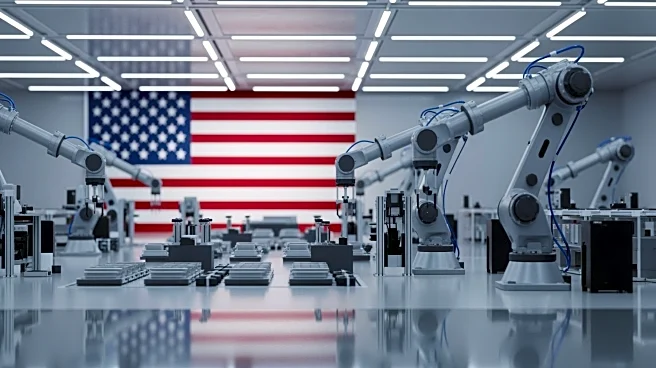What's Happening?
Walmart is reinforcing its commitment to U.S.-based manufacturing as part of a $350 billion, 10-year initiative to support domestic sourcing. At its recent Open Call event, Walmart invited over 500 entrepreneurs
to pitch products made in the U.S. This move aligns with Walmart's strategy to enhance supply chain resilience while balancing global sourcing for products better produced elsewhere. The company acknowledges the impact of tariffs on costs but aims to mitigate these through scale and diversification. Walmart's approach reflects a broader trend of reshoring, where companies bring manufacturing back to the U.S. to improve supply chain flexibility and quality control.
Why It's Important?
Walmart's strategy highlights a significant shift in the retail and manufacturing sectors towards domestic production. This move could bolster the U.S. economy by creating jobs and reducing dependency on foreign manufacturing. The emphasis on reshoring aligns with consumer preferences for 'Made in the U.S.A.' products, potentially enhancing brand loyalty and allowing for premium pricing. However, the ongoing impact of tariffs remains a challenge, influencing cost structures and competitive dynamics in the retail industry.
What's Next?
Walmart's continued investment in U.S. manufacturing may prompt other retailers to follow suit, potentially leading to a broader reshoring trend. The company's efforts to balance domestic and global sourcing could serve as a model for other businesses navigating tariff-related challenges. As Walmart expands its domestic projects, such as the beef-processing facility in Kansas, it will be crucial to monitor the economic and employment impacts of these initiatives.









